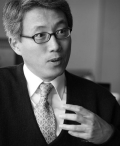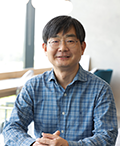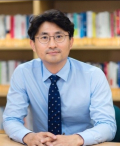-
KOSPI 2577.27 -2.21 -0.09%
-
KOSDAQ 722.52 -7.07 -0.97%
-
KOSPI200 341.49 +0.02 +0.01%
-
USD/KRW 1396 -2.00 0.14%
 Future Unicorns
Future Unicorns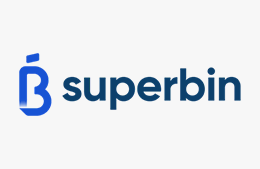
SuperBin
Consumer goods
SuperBin, as the name suggests, is a Korean startup with the aim of making the recyling and reusing waste more efficient and profitable. Its robots collect recyclable garbage from the initial waste-sorting stage, reprocesses it into high value-added renewable material and sells it to companies that need recycled resources. Founder and Chief Executive Officer of SuperBin Kim Jeungbin says the existing linear economy is not sustainble.
Published: 2021-11-30 16:02:53
Last updated: 2022-05-06 19:57:48
- Story
- Data
Whole value chain of recycling: AI-powered collection and manufacturing
One man's trash is another man's treasure... literally
While it is easy to assume that sorting through waste automatically leads to recycling, most waste is either incinerated or sent to landfills. Around 70% of the waste that arrives at recycling centers ends up at incineration plants due to it not being properly sorted during the collection process. As the result, it becomes contaminated by other waste products during transport and unable to be recycled into quality items.
A South Korean startup is seeking to solve the issues surrounding waste and environmental pollution by using artificial intelligence.
SuperBin collects recyclable garbage from the initial waste-sorting stage, reprocesses it into high value-added renewable material and sells it to companies that need recycled resources.
“The existing linear economy isn’t sustainable. Our goal is to help create a circular economic structure,” said Kim Jeungbin, founder and Chief Executive Officer of SuperBin.
Contents
Click to move to each section
- [How it began] Reverse vending machine for recyclable waste
- [Revenue model] Selling robots, recycled materials
- [Technological fortes] AI vision backed by big data
- [Unique positioning] End-to-end value chain from logistics to social impact
- [Team building] Conglomerate training and networking
- [Scalability] ESG initiatives-driven demand
- [Challenges] First-mover advantage or woes? Legality concerns
- [Funding] Korea’s largest chemical firms invested in SuperBin
[How it began] Reverse vending machine for recyclable waste
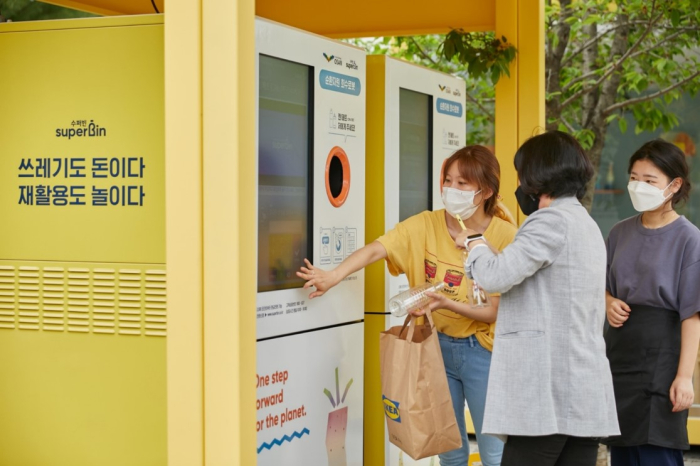
Nephron is a reverse vending machine with a slot for recyclable waste instead of coins. When users insert PET bottles and cans into a Nephron, it uses AI vision technology to determine if the item is recyclable. If an item is contaminated or unusable for whatever reason, Nephron will discharge it. A single Nephron robot can accommodate up to 1,500 PET bottles and cans.
Users earn 10 won or less than $0.01 in SuperBin Points each time they insert a recyclable item into a Nephron. Once they save over 2,000 won ($1.70), they can cash out by transferring their SuperBin Point savings to their banking accounts.
SuperBin is now treating beyond PET and aluminum cans.
The company recently launched a Nephron that exclusively collects food packaging container lids made from polypropylene (PP,) in collaboration with Korea’s leading food delivery service operator Baedal Minjok, or Baemin. The collected PP lids, which can be transparent, translucent or white, are reprocessed into usable materials and sold to petrochemical companies.
Other projects SuperBin is pursuing are reprocessing used plastic into the usable kind or turning unrecyclable garbage such as food waste into energy sources. It is also worth noting that the company plans to enter the Solid Refuse Fuel (SRF) market, which turns used plastic and wood into fuel through a grinding and drying process.
[Revenue model] Selling robots, recycled materials
The company sells Nephron robots to local governments and companies; and also charges maintenance fees. The robots are priced at around 21 million won ($18,000) per unit.
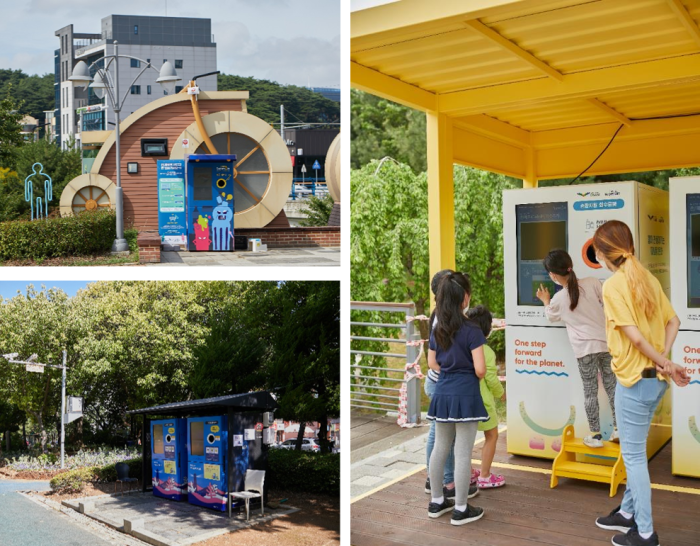
Last year, SuperBin logged revenue of around 4.6 billion won ($3.6 million.) As of May 2022, there are around 450 Nephrons scattered across Korea – as the company normally sells a few robots to each client.
This year, Gyeonggi Province has spearheaded the first large-scale Nephron project by deploying some 50 robots throughout the cities of Anyang. This is the first time such a large number of Nephrons has been concentrated in a specific region. The city of Hwaseong will install ten extra Nephrons by the end of the year.
Increasing Nephron installations by local governments are expected to serve as momentum for SuperBin’s business expansion, according to Kim.
SuperBin has also seen increased demand for Nephrons in the corporate sector, thanks to the domestic firms’ growing appetite to include the environmental, social and corporate governance (ESG) criteria in their operations.
Major enterprises such as IT giant Samsung Display Co.; platform titans Naver Corp. and Kakao Corp.; leading food delivery service operator Baedal Minjok; and the country’s No. 1 liquefied petroleum gas (LPG) producer SK Gas Ltd. all use Nephron. Naver also plans to install Nephron robots on each floor of its second headquarter, currently under construction.
Aside from supplying Nephrons, SuperBin is looking to include city waste management in its operations. The company will establish systems that manage daily waste, both recyclable and non-recyclable, in residential areas.
In December 2021, SuperBin launched a waste management project in the Busan Eco Delta Smart City’s Smart Village, one of the country’s national pilot smart cities. It established seven stations which could cover both recyclable and non-recyclable waste in residentail area.
Currently at apartment complexes, recycling depends entirely on the residents’ will to do so, which makes it hard to attain perfectly cleaned recyclables. SuperBin wants to change that by setting up an infrastructure that makes it easier to discern items that are fine to be recycled.
The second revenue model is manufacturing raw materials dubbed “flakes” from recycled PET.
They are made from clear PET bottles that are thoroughly cleansed, finely crushed and produced into plastic renewable materials or flakes, which are used as raw materials for textiles, construction and even office supplies.
Currently, SuperBin only sells a small quantity of flakes, for which the manufacturing is outsourced. However, the company will mass produce its own flakes once its plant construction is completed in mid 2022.
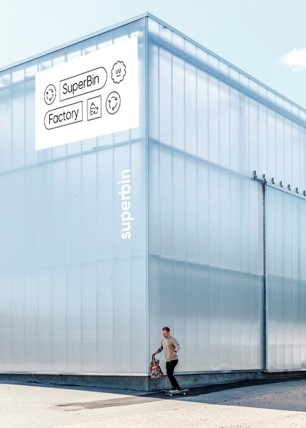
SuperBin’s high-quality plastic flakes are currently traded at 1,500 won ($1.30) per kilogram, about 10 times more than a pile of regular plastic waste that weighs the same. SuperBin’s flakes are also almost double the price of flakes made from general recyclables. The SuperBin products boast higher purity as they are made from clean waste that does not require much chemical processing.
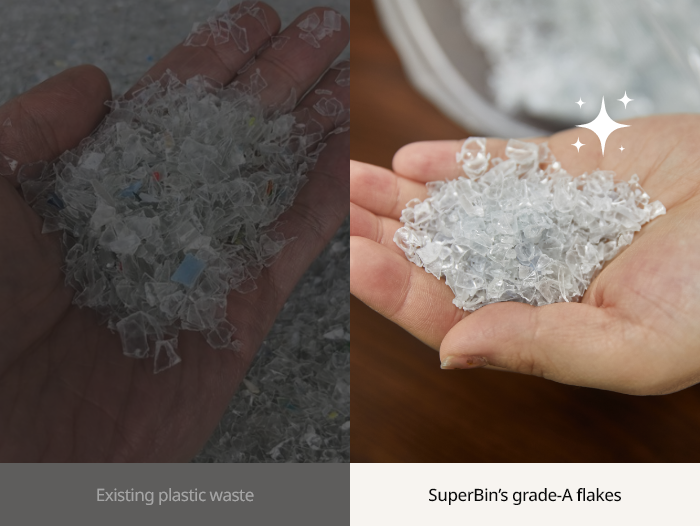
“SuperBin is the only company in Korea to mass produce grade-A flakes. Korean petrochemical companies that use plastic flakes to make products have been importing about 1 trillion won ($856.1 million) worth of flakes annually from Europe and Japan,” said Kim.
According to research by Samsung Securities, demand for recycled flakes that can be turned into long fiber reinforced plastic or PET bottles is expected to grow 14% each year going forward, to reach 3.8 million ton by 2025.
[Technological fortes] AI vision backed by big data
Nephron can not only detect what type of material is deposited but also if a PET bottle is severely crushed or a can’s barcode is illegible. On top of this, a clear guideline created by recycling experts has been incorporated into each Nephron, allowing them to cherry-pick materials that have added value.
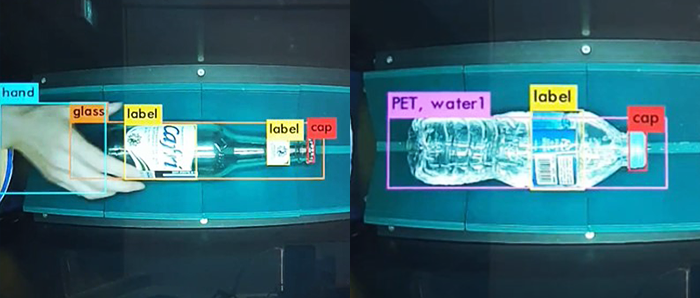
Because Nephron utilizes Deep Learning, its waste recognition accuracy continues to improve with time. Nephron first distinguishes between PET bottles and aluminum cans, and then analyzes the items to acquire additional data such as the color or transparency (in the case of bottles,) the existence of labels or caps, and if they contain any liquid or impurities.
“The AI system continues to become more refined thanks to data we are accumulating with continued PET bottles and aluminum cans deposits [into Nephrons,]” said Kim.
[Unique positioning] End-to-end value chain from logistics to social impact
The company insists on an independent logistics network to protect the commercial value of its recyclable materials. If PET bottles collected via Nephron are contaminated by being mixed with other waste, it defeats the purpose of using AI vision technology to sort out perfectly clean recyclables.
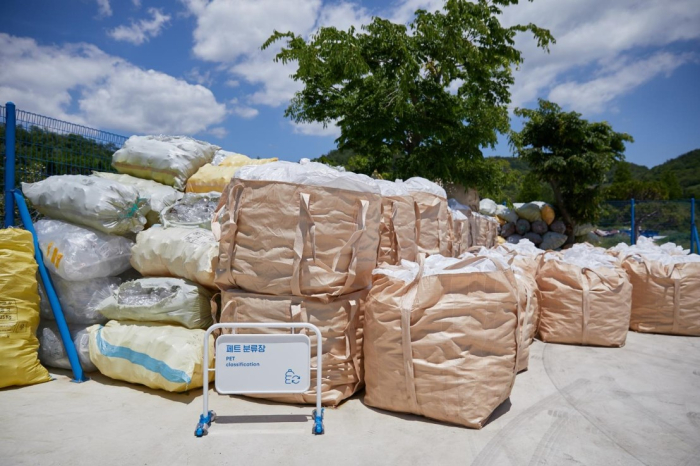
The company is in the process of developing a “supercar” to collect recyclable resources and plans to purchase a logistics company next year to expand its delivery network.
Moreover, SuperBin’s efforts to spread awareness for positive recycling are demonstrated in its social and cultural involvement. Since 2019, the company has transformed a few of its logistics sites into cultural centers – hosting a “waste market,” a “waste café” and a “waste gallery” – all which exhibit and sell recycled goods made from waste. SuperBin has also been involved in community outreach by launching a campaign to encourage joggers to pick up trash as well as offering “waste classes” since August 2021 for residents of Samcheok City, Gangwon Province.
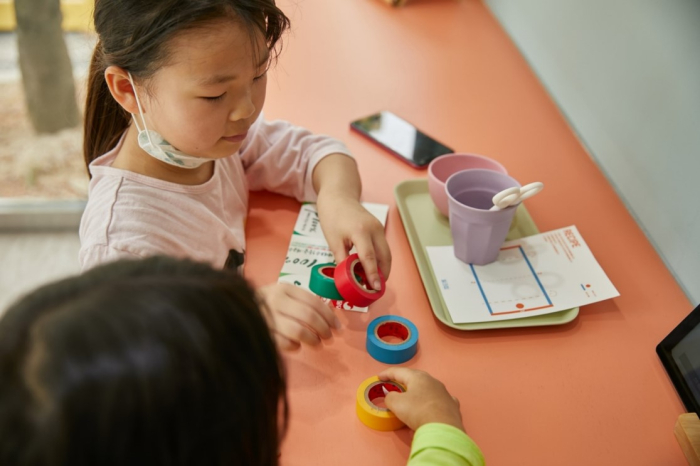
[Team building] Conglomerate training and networking
After finishing his studies, Kim returned to Korea and began his career by joining the strategic planning division at Samsung Fire & Marine Insurance Co. Post-Samsung, he went on to work as a consultant across various firms, including Samjeong KPMG and Nemo Partners. Kim was later recruited to head the strategic planning team at Korea Textile Inspection & Testing Institute, which had been his client.
In 2013, Kim, then 39 years old, was appointed as the chief executive of a steel company, Kosteel Co. Two years later, he decided to set up his own company – SuperBin.
“Operating a company that pulled in an annual revenue of around 500 billion won ($416.7 million) broadened my view of the world and made me eager to set up a company that reflects my values,” said Kim.
Kim’s experience in the steel sector inspired him to consider the recycling business. He saw that the purity of newly refined steel changed depending on the types of scrap metals that were used and likewise, he believed he could create value-added renewable materials if he could develop a system to secure high-quality recyclables.
As the CEO, he assembled a team by bringing in employees with whom he had previously worked at different companies. SuperBin’s chief financial officer and chief operating officer is Kim Eung-sik, who was previously the CFO at Kosteel alongside him. Kang Joong-yong, the chief technology officer, joined the company from Humax Co., an early stage investor of SuperBin. Shim Bo-hyun, the chief creative officer, previously worked at Samsung Electronics as a designer and ran his own design studio.
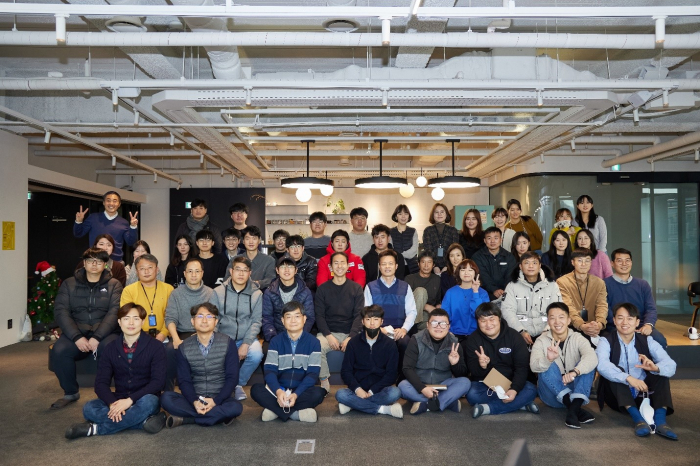
Further, Humax Chairman Byun Dae-gyu, noted as one of the country’s first-generation entrepreneurs, is the chairman of the board of directors at SuperBin. Byun also chairs the board of Naver, Korea’s largest platform operator. From early on, Byun recognized SuperBin’s growth potential and invested in the company, which included transferring some of Humax’s software and hardware developers to the company. Since 2019, SuperBin has kept its office in the Humax Village in Seongnam City, Gyeonggi Province.
Design plays a key role in SuperBin’s marketing activities as Kim considers it a tool to communicate with consumers and users.
“On top of developing technologies and products, we share our values through design,” said Kim. This may explain why SuperBin has an in-house chief creative officer, a unique position in an IT-based waste startup.
[Scalability] ESG initiatives-driven demand
To begin with, the company will build a 13,000 square-meter recycling plant that can annually reprocess up to 20,000 tons of plastic bottles to produce flakes. The company is set on achieving vertical integration in the renewable materials segment by manufacturing the flakes in-house, a function that was previously outsourced.
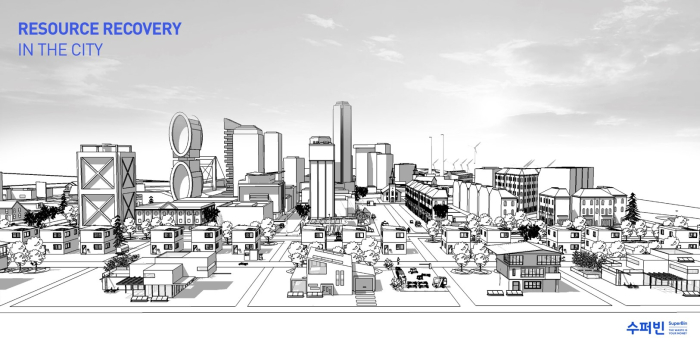
The flakes produced at this plant will be provided to Korea’s major petrochemical companies including Lotte Chemical Corp. Going forward, SuperBin will set up a plant in each province.
According to CEO Kim, the existing flake manufacturers’ operating margin stands at 40% with a production yield of 60%. But SuperBin aims to achieve a 60% operating margin since it can boast about a 90% production yield thanks to using high-quality waste material.
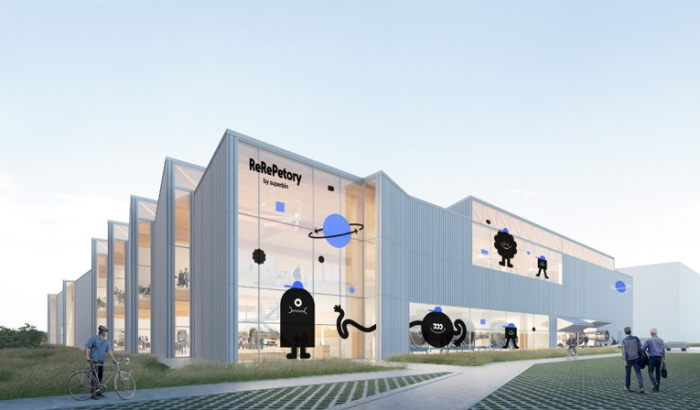
In 2023, the company plans to build its second plant in the southern part of the peninsula. Within the new plant, there will also be a factory that will take the flakes to the next level – the manufacturing of pellets. Another factory at the new location will manufacture SRF, or Solid Recovered Fuel, from various wastes. SRF is sometimes dubbed RDF or Refuse Derived Fuel.
The company also expects to see its Nephron sales grow, backed by the Korean government’s eco-friendly policies such as the Green New Deal as well as the ESG initiatives adopted by large business groups and local governments.
“Local governments won’t need to purchase garbage pickup trucks or hire additional people if they use Nephrons,” explained Kim, adding that increased adoption among local governments will establish an ecosystem that is much more efficient at recycling resources than previous methods.
SuperBin will also foster a “data architecture business” by building an infrastructure where AI or sensors use Nephron’s image data to identify the daily waste and match it to appropriate venues where there is demand.
To achieve this goal, SuperBin will improve its classification system. The company will aggregate data from various types of sensors to construct an optimal system for recognizing and differentiating waste.
“We will use our vast data to create a waste index to match any recyclable material with a place or company that has a demand or use for it,” said Kim, adding that with this information, it will be easier to make robots that select and collect specific recycled items that are in demand.
Kim also highlighted the growth potential of the waste market, which is expected to reach the same size as the manufacturing industry since all manufactured products are bound to become waste.
Adding to the list of its revenue model is the ability to trade carbon allowances. A United Nations carbon credit is a permit that allows a company that holds it to emit a certain amount of carbon dioxide or other greenhouse gases. One credit permits the emission of a mass equal to one ton of carbon dioxide.
Kim said, once the Hwaseong plant is completed, the company would likely receive verification from the UN to issue carbon credits. The more it can manufacture the recycled flakes, the more credits will be issued. For example, US electric vehicle maker Tesla reportedly made $354 million from selling environment credits this year; 17% less than a year ago.
Starting in 2022, SuperBin is targeting an 80% average annual growth rate for four consecutive years. In 2025, the company aims to export raw materials to overseas packaging markets and log a revenue of 100 billion won ($85.6 million.)
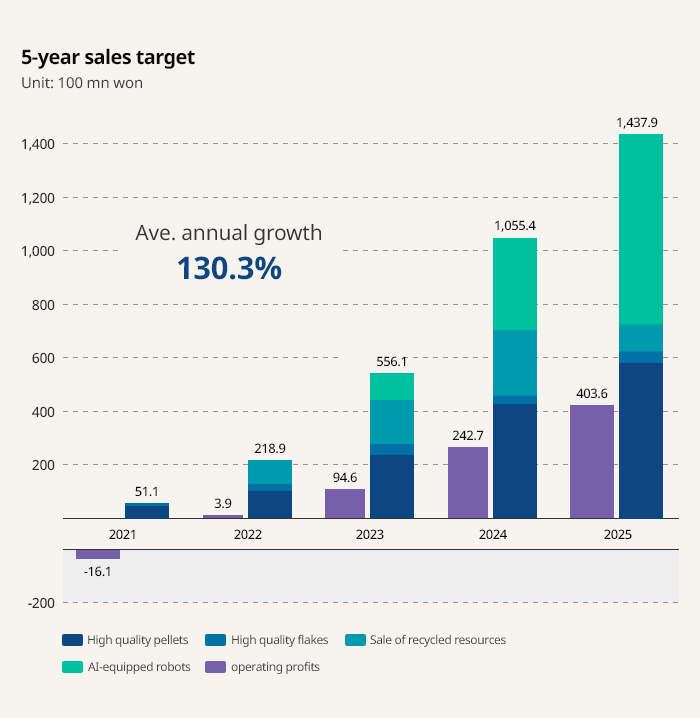
[Challenges] First-mover advantage or woes? Legality concerns
Regarding such concerns, Kim stressed the difference between SuperBin and other waste collection companies.
SuperBin signs contracts with hundreds of thousands of users while waste collection companies generally sign contracts with apartment complexes. The company also facilitates recycling by incentivizing users to bring in recyclable waste and connecting them with recyclable companies, according to Kim.
“The supplier, the buyer and the user are all different in the recyclable waste market,” said Kim, adding that establishing a value chain that caters to each group’s needs is crucial.
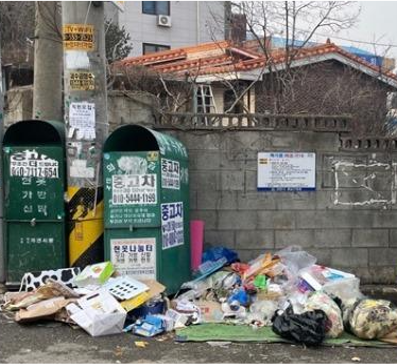
The CEO says it will not be easy for a latecomer to drastically expand since the licensing for waste management differs for each region and business. SuperBin has acquired licensing for collecting, transporting and reprocessing waste in Seoul and other areas around the capital. The company plans to get additional approval in more provinces.
Another concern is that if SuperBin ventures abroad, it may face a legal battle from foreign companies that also operate recycling robots. For example, the Norway-based Tomra robot also manufactures and operates reverse vending machines. Last year, Tomra posted revenue of around 9.9 billion Norwegian krone, around 1.4 trillion won ($1.2 billion.)
While they are both reverse vending machines, Kim says the two robots do not share commonalities in terms of software.
“Tomra’s reverse vending machine operates by reading barcodes on container labels while Nephron is an AI-based robot,” said Kim, referring to the latter’s ability to dissect imagery outside of the labels.
[Funding] Korea’s largest chemical firms invested in SuperBin
Between 2018 and 2019, SuperBin raised 3 billion won ($2.57 million) in a Series A round from the aforementioned IT company Humax and venture capital firm TBT Partners.
In 2020, the company secured 20 billion won ($17.1 million) in a Series B round, attracting strategic investors from the petrochemical and chemical textile industry that were looking to firm up their ESG efforts and secure a stable supply of plastic flakes.
SeAH Global, which holds the textile and apparel company Sae-A Trading Co., was the biggest investor in the 10 billion won fund set up by Fine Investment to invest in SuperBin. SeAH plans to use SuperBin flakes for long fiber production and in its apparel business.
In June 2021, SK Geo Centric Co. also acquired a 5% stake in SuperBin by investing 5.5 billion won ($4.7 million.) Lotte Chemical and GS Caltex also invested in the firm via Lotte Accelerator and Samho Green Investment Fund, respectively. The three companies have invested a total of around 7 billion won ($5.9 million).
SuperBin also has secured a line of credit from Korea Development Bank and Korea Credit Guarantee fund after it was selected as an ‘Innovation Icon’ from the government institutions. It can borrow up to 15 billion won ($12 million) at ultra-low interest rate if and when it needs extra funding.
The growing company is in the process of attracting investments in the Series B Bridge round. SuperBin already raised 12 billlion won($9.4 million) in the Series B Bridge round from global bank - 5 billion won ($3.9 million) from Korea Development Bank, 4 billion won ($3.1 million) from joint business execution union (IBK Securities Co.,Ltd & Hana Financial Investment Co.,Ltd) and so on.
SuperBin plans to carry out a Series C round as early as 2023. The company is also considering an initial public offering, but Kim appears to be in no rush.
“If things go as planned, we can secure enough funding through organic growth,” said Kim, adding that if the company were to pursue an IPO, it would take place in the United States.
By Seon Han-gyeol; Edited by Jee Abbey Lee
(always@hankyung.com)
- [How it began] Reverse vending machine for recyclable waste
- [Revenue model] Selling robots, recycled materials
- [Technological fortes] AI vision backed by big data
- [Unique positioning] End-to-end value chain from logistics to social impact
- [Team building] Conglomerate training and networking
- [Scalability] ESG initiatives-driven demand
- [Challenges] First-mover advantage or woes? Legality concerns
- [Funding] Korea’s largest chemical firms invested in SuperBin
